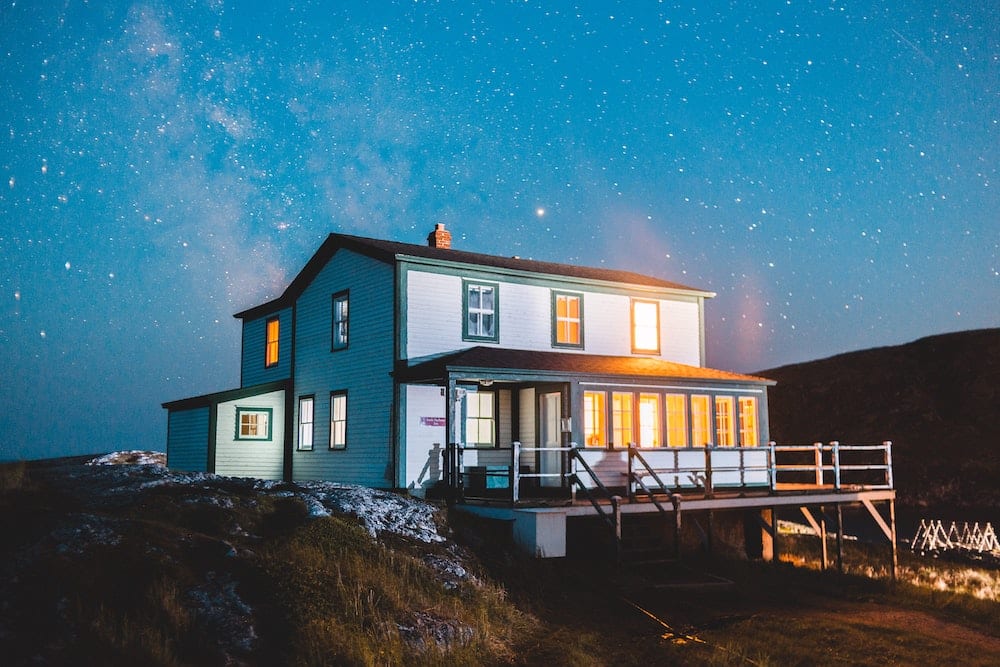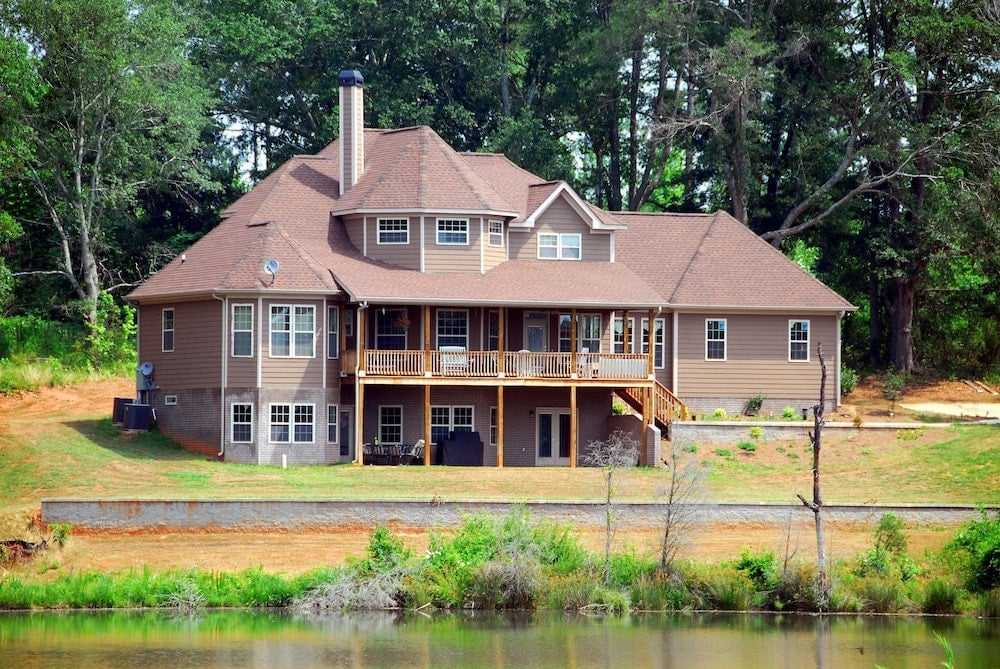Investing in a vacation rental business isn’t a decision to take lightly. However, as the short-term rental industry continues to grow, 2024 could be the perfect time to do so.
The success of any short-term rental business will depend on having actionable goals and clear objectives based on thorough market research, whether you’re a newbie or an experienced property investor.
It’s crucial to create a strategic business plan for short-term rentals before you hand over a deposit or receive the keys. A viable business and management plan will help you identify the risks and prepare you for the challenges ahead.
In this article, we look at what a business plan is, give you samples and templates to use, and analyze the 15 steps your vacation rental business plan needs to help you get started.
Don’t see the form to download our Vacation Rental Business Plan PDF? Click here.
What is a vacation rental business plan?
Simply put, your business plan is an overarching set of rules, goals, and frameworks to help you make decisions for your new business and its future.
Not only will a vacation rental business plan help you define your strategy, but you can repeatedly refer back to it to ensure you are going in the right direction.
Business plan vs. vacation rental business model
Many aspiring rental owners confuse these two documents or assume they’re the same, so let’s review the differences.
A short-term rental business plan is a detailed document that outlines your business goals and how you plan on achieving them. A short-term rental business model, on the other hand, is your core framework for providing value to guests and operating profitably. Business models are much shorter, often including only a customer value proposition and pricing strategy.

Why do you need a vacation rental business plan?
Vacation rental owners are eager to hit the ground running when they buy their first properties—who wouldn’t be? Any vacancy or downtime on the property means more money that’s coming out of your pocket. A vacation rental property business plan will guide you through the initial steps and beyond, helping you maximize your profit and success as a host.
Beyond just making money, having a good business plan for vacation rentals will allow you to measure success and identify areas for improvement accurately. For example, it will help you focus on key metrics, such as your budget, local market insights, and expansion opportunities.
How to write a short-term rental business plan: video summary
15 steps to create your vacation rental business plan
To make things easier for budding entrepreneurs, we’re including 15 steps to help you succeed in writing your short-term rental business plan. We also reached out to the following industry professionals for their insights!
- Antonio Bortolotti, founder of Vacation Rental Secrets and host of the Vacation Rental World Summit
- Cynthia Chan, co-founder of Airhosts Forum (the largest Airbnb host forum online)
- Karen Spencer, founder of The Business of Holiday Rental
Prefer a downloadable template? Scroll to the bottom of the page to download our customizable Short-Term Rental Business Plan PDF!
Step 1. Executive summary
For people outside Fortune 500 companies, writing an “executive summary” can be a bit scary. However, it’s a lot simpler than you may think!
An executive summary is just a few sentences that summarize your vacation rental business and includes all the essential information you want to get across. This is so that anyone can read the first page of your plan and know, at a glance, what your business entails.
Start by asking yourself the famous five Ws:
- Where is your vacation house located? By the beach, in the middle of the city, or in the countryside?
- What is it? A family vacation home, a glamping accommodation, or an ideal spot for business travelers?
- Who is it for? Families, couples, or large groups of friends?
- When is it best to stay at your rental? The summer, winter, or year-round?
- Why do you have this property? Is this a spare room you’re renting out for extra cash, a way to top up your pension if you’re retired, or your main form of income?
Answering these questions will help you outline what information you would like to include in your executive summary. You can then rewrite your responses to make sure your summary sounds professional.
Note: If you are still unsure about the details of your executive summary, feel free to do it at the end of your business plan—it’s a case of saving the best until last!

Step 2. Business goals
Your executive summary is going to give you a broad overview of where your business is going, but the goals section will help to further solidify this vision. Goals are what help you to set markers for what success in your business looks like.
Are you satisfied with a couple of bookings a month, or are you expecting a full reservation calendar by the end of the year? You’ll need to set goals to help pin this down.
What’s more, make sure your business goals are SMART: smart, measurable, attainable, relevant, and time-based.
Step 3. Value proposition
As with any business, you’ll need to state why customers are going to choose your business. It’s difficult to take yourself out of the equation when evaluating your business. After all, you’ve poured your blood, sweat, and tears into this project, so why wouldn’t guests choose you?
No amount of effort is enough if it’s not adding any value to your vacation rental. Consider how your vacation rental will provide a guest experience that the other properties in your area simply can’t provide.
Step 4. Company analysis
In this section, you should aim to explain the unique selling points (USPs) of your new vacation rental business, outlining what it will bring to the existing market.
Start by asking a few simple questions to figure out how you’re different (and better) than other rental properties out there. After all, once you are confident in your strengths, your guests will be, too!
Here are a few examples:
Is it better than others because of its location?
- Is it close to the beach?
- Main public transport lines?
- Is it off-the-grid?
Is the price of your accommodation better?
- Are you the cheapest accommodation around?
- Are you the best value?
- Do you offer discounts at certain times of the year?
Are the interiors of your property different or better than the rest?
- Do you offer a cozy, rustic getaway?
- Do you offer a fireplace where a family can sit at night?
- Is it a themed vacation rental?

Step 5. Industry analysis
If you want to be successful in the rental business industry, you’ll need to be strategic and competitive in your company management plan. So, this section is where you state some key facts about current trends and expectations.
One of the ways to do this is by carrying out an industry analysis. This is basically looking at other vacation rental businesses and evaluating them.
Here are some sample questions that will help start your industry analysis:
What do vacation rentals near me charge per night?
- Would you class it as affordable or good value?
- Is it less than $50 per night? Or Is it more than $300?
- Think about the figures you come up with in relative terms, weighing the value of what the business is offering against the price they charge. This will help you start to price competitively.
Who is their target audience and clientele?
- Are they families?
- Couples looking for a romantic break?
- Do they target students and school groups who need large but basic accommodations?
Are they luxury units or more basic rentals?
- Are they upmarket rentals in the most expensive parts of your area?
- Or are they modest vacation home rentals that students could afford?
- Do the rentals tend to fall in one end of the price range, leaving a gap in the market?
Are they self-catered or Bed & Breakfast?
- Do they offer a light breakfast?
- Or do they offer a breakfast buffet?
What websites/agencies do they use for bookings and advertisements?
- Are all your competitors advertising on Airbnb, Vrbo, etc.?
- Do they collaborate with local tourism agencies?
- Are they all missing out on a popular booking website that only you know about?
“I recommend owners to focus on profit per booking, not occupancy rates. We’re in it to make money, not fill as many nights as possible (that comes next). We could all be 100% full if we undervalued what we were offering. That doesn’t make good business sense. Be prepared to spend more when you first start out, to bring a quality product to the market. You’ll soon reap the rewards this investment in your future business will bring.” – Karen Spencer
Step 6. Customer analysis
Your customers—or rather, your guests—are how you are going to make your money. That’s why it’s important to understand and target them properly.
In your plan, create different buyer personas based on the types of guests you want to attract. This is like a profile of your ideal customer, from age to income. You should try to make it as detailed as possible because it will help your business grow later.

Creating buyer personas starts with a customer analysis. A customer analysis is just getting to know your customers and what they want and need from a rental property and a vacation.
Here are some key questions you should ask yourself about your ideal guest:
- What’s their name? It may seem silly to name a fictional person, but it will bring your customer analysis to life and help you imagine the buyer persona.
- What do they work as? For example, are they a high-flying banker, a medical professional, or an educator?
- How old are they? Think in terms of age ranges: 18-25, 25-40, and 40-60, and 60+.
- Do they have a family? If so, how many children do they have?
Keep going with questions like this until you’ve built an entire profile of the person. This will then help you understand their values, spending habits, common complaints, and amenities they’ll be looking for.
Getting anxious to dive in? Scroll to the bottom of the page to download our customizable Vacation Rental Business Plan PDF and get started!
Step 7. Competitive analysis
Another element of your vacation rental property business plan is conducting competitor research. Take a look at the market to find your direct competitors and analyze them to see how your business can thrive.
Competitive analysis is similar to industry analysis, but this time you’re going to focus on your immediate competitors rather than the industry as a whole. For example, if your short-term rental is a house by the beach, your direct competitors would be other accommodation providers on the beach.
With competitive analysis, you want to look at the people who may win a booking over you and use what you find to put yourself on top. Ask questions such as the following:
How much are my competitors charging per night?
- Competitor 1 – $100
- Competitor 2 – $150
- Competitor 3 – $200
Using this information, you may decide to drop your prices below $100 to become the cheapest option among your competitors and increase your booking rates.
What standard of accommodation do they offer?
- Are they all standard camping sites?
- Or are they high-end units?
- Are they somewhere in between, suitable for most travelers?
Do they offer airport transfers/pick-up service?
- No.
- Yes, but for a very high price.
- Yes, and for a reasonable price.
Do they offer a wide range of amenities in the house?
- No, most don’t even offer Wi-Fi.
- Yes, some offer basic things like a washing machine and television.
- Yes, all offer basic amenities, and some even include luxury amenities (like a swimming pool or gym).

Step 8. Operations plan
The operations plan is simply an insight into how you’re going to run your new business on a day-to-day basis. It will consider whether you will hire any staff, what standards you will set, and how you will keep track of inventory and other administrative duties.
This will be one of the most straightforward parts of your business plan. Chances are, you already have all of this planned.
Here are a few helpful prompts and examples in case you get stuck:
Am I going to hire any staff?
- No, I’m only renting out one room in my home, which I can do myself.
- Yes, I’m renting out several large apartments, and I have a separate, full-time job.
- No, my partner and I will do the work together.
Who is going to clean the rentals between guests?
- A cleaning agency?
- Yourself?
- A neighbor?
Do I need to hire an accountant to help me handle the finances of my business?
- No, I’m comfortable dealing with all of those things.
- Yes! I don’t know the first place to start when dealing with taxes or business records.
Who will deal with bookings and customer complaints?
- Myself, with only one room it will be very manageable.
- I will hire an assistant to help with all of this administration stuff, I won’t have time!
- My daughter/son, it will be a good part-time job for them to give them an allowance.
To keep things simple, you can also use solutions such as Lodgify’s property management software and channel manager.
Step 9. Marketing plan
Explain which strategies you will use to advertise your business and generate bookings. Think about both online and offline marketing, as well as any campaigns or promotions you plan to run externally.
This is when your buyer persona (which you created earlier) will come in handy. If you know the people you’re trying to target, you’ll know what websites they use and what type of marketing will be suitable for them.

Your marketing strategy can be really diverse. Here are some questions to help you sketch it out:
What methods of online marketing should I use?
- I will just list my bookings on one travel website because that is enough for me.
- I will have my own, personal vacation rental website. My site, my rules!
- I have several properties to rent, so I will list them on several vacation rental websites to increase traffic and booking numbers.
- I will pay for Google Ads in my local area.
What methods of offline marketing should I use?
- None, online marketing will be enough for me.
- I will print flyers and leave them in local tourist offices.
- I will give each guest business cards and ask them to recommend me to friends and colleagues.
Do I have a website?
- No, I don’t want/need to create one.
- No, but I want one! I need to hire someone to create one for me or try a professional website builder.
- Yes, I have one, and I’m going to hire a search engine optimization specialist to help me increase the number of visits to it.
Do I have business cards?
- No, I don’t need any.
- Yes, I have some but I won’t use them.
- Yes, I have some, and I’m going to use them as part of my marketing strategy.
“While I’m not sure there is a one-formula-fits-all, there are a few things that helped me: a great website, awesome warm-hearted, personal communication skills, finely tweaked standards, procedures and operations, an open mind and willingness to widen your horizon by questioning what you’ve achieved and learning what’s next. Because we are in an ever-changing and challenging world and only those willing to adapt to the changes will survive.” – Antonio Bortolotti

Step 10. Task delegation and employee management plan
It pays off to dream big, but make sure you have the capacity to do so. How will you manage guest turnover if you’re planning to rent your property every night? Better yet, who will manage guest turnover?
Depending on the scale, your goals will take some serious work to get there. Make sure you’ve factored in how you will manage it alone or how you plan to delegate tasks.
If you know that you’ll need to hire some staff, be it a property manager, cleaning service, or maintenance person, you’ll have to plan for how you’re going to distribute and delegate the work. Using task management tools and including them in your business plan outline will help you to make the most of your teams’ efforts.
“In such a demanding and dynamic industry as ours, finding the right combination of software that aligns with your individual business needs is key to accomplishing all this. And it’s not easy.” – Antonio Bortolotti
Step 11. Distribution plan
Websites like Airbnb and Vrbo are referred to as online travel agencies, or OTAs. For all new hosts, presence on OTAs and listing sites is essential to get bookings.
Your distribution plan should consider which channels you’ll be advertising on, how much they’ll cost you, and how you’ll manage them (hint: you might need a channel manager).
Here are some helpful example questions to get you started writing a distribution plan:
Which OTAs do I want to list my property on?
- Just one?
- Every OTA that is available? I need lots of bookings!
How much will this cost me?
- Is it free?
- Do you have to pay monthly to list on these websites?
- Do they take a commission off bookings you receive from that website?
Are there any tools available to help me manage all of this?
- Yes! A channel manager.
- A channel manager is a tool you can use to ensure all of your bookings, dates, and arrangements remain in one place so you don’t get overwhelmed managing calendars from multiple OTAs.
When I do get a booking, how will I receive the payment?
- PayPal account.
- Bank transfer.
- Cash/card payments directly from guests upon arrival.
“If a host’s goal is to maximize their revenue and bookings, it definitely makes sense to list on several platforms. Based on research from one of our partners, Tokeet, they found that some of their hosts had reported a 20% increase in bookings once they used a channel manager to list across several home-sharing sites. I would recommend that if a host is listing across several platforms, they should utilize a channel management program to make it easier to manage their listings and their calendars so they don’t double book.” – Cynthia Chan
Step 12. Revenue management plan
So, this is the numbers part. But don’t worry—revenue management is not as scary as it sounds!
In this section, you’ll have to include information about the rates you plan to charge for your vacation rental, alongside any details about pricing or yield management tools you will use.

For people who feel overwhelmed by this, there are a lot of tools and software out there to help. To start with, we’ve written some quick questions to cover the basics of your revenue management plan to make sure your accounts and business stay well in the green.
How much will I charge per night?
- Fixed price: $100 per night.
- I’ll use dynamic pricing, increasing the amount during busy periods.
- I’m still undecided.
Pro tip: Lodgify Dynamic Pricing uses an algorithm that factors in 40+ listing attributes, market conditions, and local trends to automatically optimize your nightly rates.
What level of taxes will I have to pay to the government?
- 12%?
- 20%?
- I’m not sure. I need to research this before writing my revenue management plan.
How much will my utilities cost?
- Water is $50 a month.
- Trash collection is $30 a month.
- Electricity will vary depending on how many guests I’ll have.
What will my staff costs be?
- Zero, I’m doing all of the work myself.
- Low, I’m paying my teenage children an allowance to help me with some household chores.
- High, I’m going to hire a cleaning agency, a marketing specialist, a website developer, etc.
What’s my target monthly income?
- $500?
- $10,000?
- Anything above $0 at the beginning?
“Set stretching yet realistic prices. Quality holiday homes can charge more (because they are worth more) than an average place. When it comes to setting your prices, you need to know what it costs you to welcome each set of guests and work up from there, ensuring a healthy profit per booking every time. The more you charge per week, the more revenue per booking, yet your changeover costs, your marketing costs, your time spent, will be the same.” – Karen Spencer

Step 13. Financial plan
Think about how you are going to finance your new business. As with anything in life, proper budgeting will prevent future stress and help your business thrive.
So, what kind of information makes up a financial plan?
Will I need to take out a loan?
- No, I’m just renting out an existing property with everything ready to go.
- Yes, I will need a small loan to renovate this property.
- Yes, I will need a substantial loan to purchase the property/land where I’m going to build my rental.
What will the interest rates be?
- 2.5%?
- 15%?
- Variable?
Do I have savings I’m ready to invest into it?
- I don’t want to put my savings into it.
- Yes, I have a small amount that I’ll use for redecoration.
- Yes, I have lots of savings that I’ve been keeping for a project like this!
What level of monthly loan payments can I manage?
- None, my business has small incomings, so I don’t want to take a loan.
- $100 for a small loan?
- $750+ for substantial mortgage repayments?
“Not factoring in the cost of educating yourself is a luxury you can’t afford. The reason I’m part of online communities (I go to industry conferences like VRMA and I put together the Vacation Rental World Summit) is because I’m the first one to not know everything.
I’m aware that if I want my business to thrive while this industry changes and crashes, I need to stay informed on what’s changing, adjust my strategies accordingly, and be prepared for what’s coming.” – Antonio Bortolotti

Step 14. Key milestones and business future
Write down your plans and goals for your business, plus what key milestones will help you achieve these targets.
When you start any project, whether it is going back to university, exercising, or starting a business, it is really important to track your progress. This section will be useful to refer back to and ensure you’re on the right track.
Here are some good milestones to use for your rental business:
How much do I want to make each month?
- $500? $750? $3.000?
- This answer will be linked to your financial plan, so this is a good time to go back and look at what you wrote down in Step 10.
How many guests do I want in the first quarter?
- 10?
- 100?
- As many as possible—I know I’m still in the beginning.
What rate of growth do I want in my bookings year-on-year?
- 1%?
- 100%?
- I’ll figure this out in the second year. I’m just getting started at the moment.
How many returning clients do I want each year?
- At least 10?
- More than 20—I’m confident in the service I provide.
- As many as possible!
“The biggest hurdle that Airbnb hosts have to get through in their first few years of business is to get enough reviews so that guests are comfortable staying at your listing. The more reviews you have, the higher your listing appears in the search results as well, so the biggest focus for hosts should be to get as many good reviews as possible.” – Cynthia Chan

Step 15. Vacation rental business plan: appendix
The appendix in your vacation rental business plan should include all of the relevant documents you have for your business, containing the vital information you need to keep things running.
For example, ask yourself:
- What’s the number for a plumber, just in case I have problems with the pipes?
- Where are my tax registration details?
- Have I kept receipts of all of the things purchased for my business recently?
- Have I backed up my online bookings and calendar somewhere?
Scroll to the bottom of the page to download our customizable Short-Term Rental Business Plan PDF and get started!
Vacation rental business plan: tips and tricks
So, you followed the 15 steps above. Now you’re done, right?
Well, not quite. With the industry growing increasingly competitive, it pays off to follow a few additional tips to get a competitive edge:
- It’s all about the timing. Writing a business plan before buying the rental home is advisable, so you can truly judge if it is a worthwhile investment and business venture.
- You get back what you put in. If you invest time, money and effort into your business, you will reap financial and personal rewards. And to be number one, you need to invest more effort and time than your competitors.
- Quality over quantity. Don’t forget that most people will choose value over price, so don’t compromise one for the other.
- Get yourself out there. The more places you advertise your business (your own website, third-party platforms, social media, etc.), the more bookings you’re going to get.
- Enjoy yourself! The old saying that you’ll never work a day in your life if you love what you do is completely true with vacation rentals. And the more you enjoy yourself, the better the experience will be for guests.
“Quality is essential in everything you do. From the product you bring to the market to the excellent customer service you offer your guests.” – Karen Spencer

Common mistakes found in short-term rental business plans
For many hosts, owning a vacation rental is their first business venture. So, it’s all too easy to make mistakes along the way. Here are some of the most common mistakes to look out for:
- Targeting everyone: We know you want to welcome as many guests as possible. Still, you should avoid trying to attract all guest types, as it might lead to attracting none. Instead, define your target customers based on your value proposition.
- Ignoring the competition: Evaluate your competitive edge in price, value, style, and availability to see where you need to improve. Recognize that rivals may outdo you, even if you believe your rental is the best.
- Making an unrealistic finance plan: Avoid overestimating revenue and underestimating the budget. You may have big goals, but maintain a realistic approach to financial planning.
- Assuming standard home insurance covers you: Include vacation rental insurance, and specifically a policy tailored for vacation rental owners, in your business plan to ensure proper coverage.
Download our free vacation rental business plan template
Don’t know where to start? Don’t worry!
All you have to do is download our free vacation rental business plan sample below and fill in your own information. Our handy guide includes all of the questions you need to ask yourself before starting your new venture.
Don’t see the form to download our Vacation Rental Business Plan PDF? Click here.


